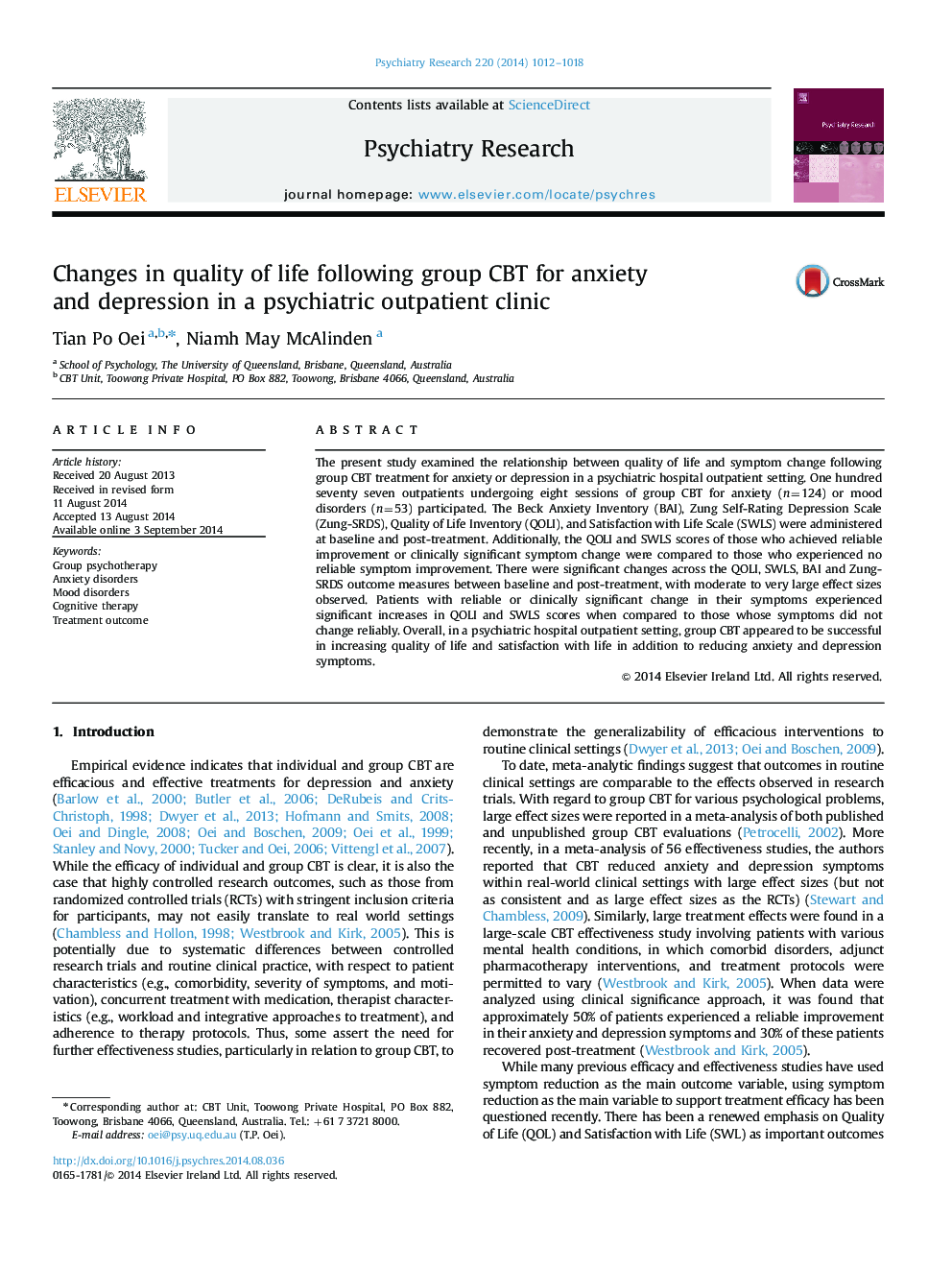| Article ID | Journal | Published Year | Pages | File Type |
|---|---|---|---|---|
| 6814696 | Psychiatry Research | 2014 | 7 Pages |
Abstract
The present study examined the relationship between quality of life and symptom change following group CBT treatment for anxiety or depression in a psychiatric hospital outpatient setting. One hundred seventy seven outpatients undergoing eight sessions of group CBT for anxiety (n=124) or mood disorders (n=53) participated. The Beck Anxiety Inventory (BAI), Zung Self-Rating Depression Scale (Zung-SRDS), Quality of Life Inventory (QOLI), and Satisfaction with Life Scale (SWLS) were administered at baseline and post-treatment. Additionally, the QOLI and SWLS scores of those who achieved reliable improvement or clinically significant symptom change were compared to those who experienced no reliable symptom improvement. There were significant changes across the QOLI, SWLS, BAI and Zung-SRDS outcome measures between baseline and post-treatment, with moderate to very large effect sizes observed. Patients with reliable or clinically significant change in their symptoms experienced significant increases in QOLI and SWLS scores when compared to those whose symptoms did not change reliably. Overall, in a psychiatric hospital outpatient setting, group CBT appeared to be successful in increasing quality of life and satisfaction with life in addition to reducing anxiety and depression symptoms.
Related Topics
Life Sciences
Neuroscience
Biological Psychiatry
Authors
Tian Po Oei, Niamh May McAlinden,
